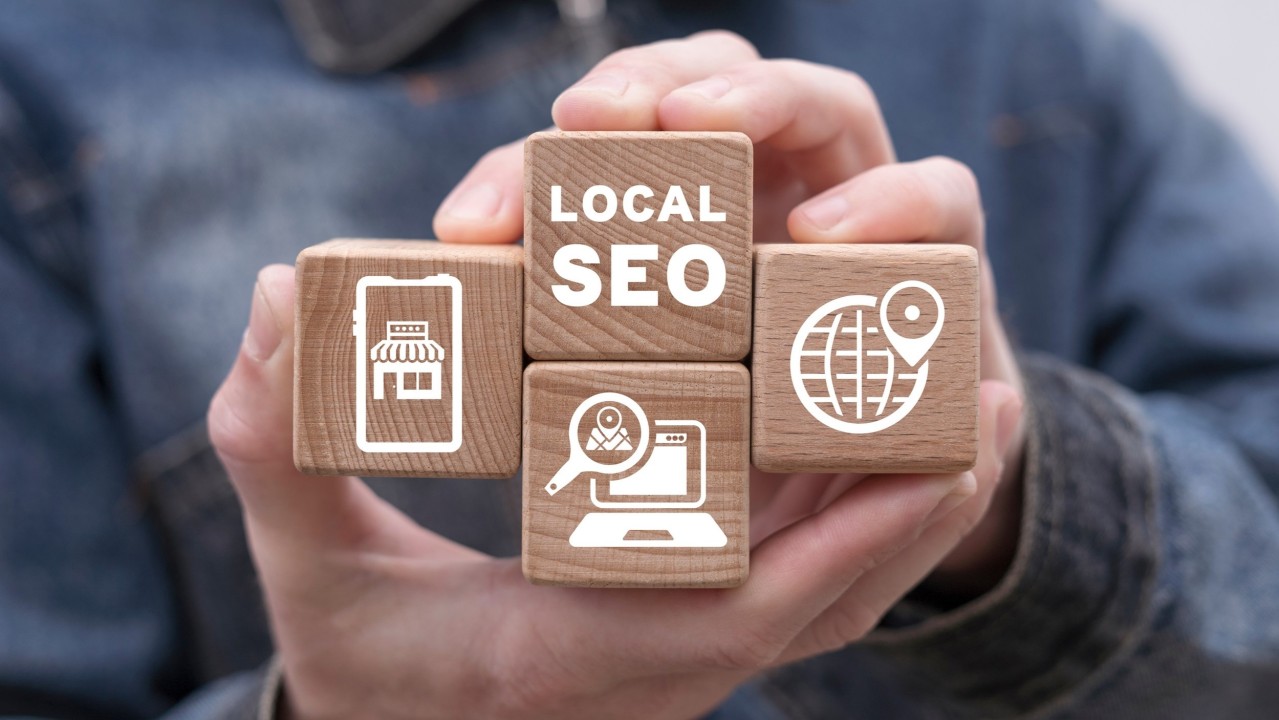News
Achieving Higher Conversion Rates: The Role of Agencies in CRO
Conversion Rate Optimisation (CRO) is a crucial element in achieving this goal, and digital marketing agencies play a pivotal role in helping businesses enhance their CRO efforts.
In this article, I will explore the concept of CRO, the strategies that agencies employ, and how partnering with a digital marketing agency can significantly impact a business’s ability to achieve higher conversion rates.
Understanding Conversion Rate Optimisation (CRO)
Conversion Rate Optimisation (CRO) is the process of enhancing a website or digital platform to increase the percentage of visitors who take a desired action, such as making a purchase, signing up for a newsletter, or filling out a contact form. CRO focuses on understanding user behaviour, identifying barriers to conversion, and implementing changes that encourage visitors to complete the desired actions.
CRO is often seen as a blend of art and science. It requires a deep understanding of user psychology, design principles, data analysis, and technical optimisation. At its core, CRO is about delivering a seamless and intuitive user experience that encourages users to engage with a website and convert into customers. This is where digital marketing agencies come into play, offering the expertise, resources, and experience needed to implement effective CRO strategies.
The Role of a Digital Marketing Agency in CRO
While businesses may attempt to handle CRO in-house, many find that partnering with a specialised digital marketing agency yields better results. An agency brings a wealth of experience in optimising websites and marketing campaigns for a variety of industries. Here are some key ways in which agencies contribute to the success of CRO efforts:
1. Data-Driven Insights and Analysis
At the heart of effective CRO is data. Digital marketing agencies rely heavily on data analysis to understand user behaviour, identify patterns, and uncover opportunities for optimisation. Agencies employ a range of tools, such as Google Analytics, heatmaps, session recordings, and user surveys, to gather insights about how users interact with a website.
For example, heatmaps can reveal where users are clicking, scrolling, and spending the most time on a page, providing insights into areas that may need improvement. Similarly, session recordings allow agencies to observe user journeys in real-time, identifying friction points that may be causing visitors to abandon the site before converting.
Agencies also perform detailed A/B testing, which involves comparing two versions of a webpage or element to determine which one performs better in terms of conversions. By running multiple tests and analysing the results, agencies can make data-driven decisions to improve user experience and optimise for higher conversions.
2. User Experience (UX) and Design Optimisation
The user experience is a critical factor in conversion rates. If a website is difficult to navigate, slow to load, or lacks intuitive design elements, visitors are likely to leave before converting. A digital marketing agency specialises in creating websites that are not only visually appealing but also designed with the user journey in mind.
Agencies work closely with businesses to understand their target audience and design websites that cater to the specific needs and preferences of their users. This includes creating clear and concise calls-to-action (CTAs), optimising page layouts for mobile and desktop devices, and ensuring that the overall design is user-friendly.
In addition to design, agencies focus on page speed optimisation. Studies have shown that even a one-second delay in page load time can result in a significant decrease in conversions. Agencies use technical optimisation techniques, such as image compression, content delivery networks (CDNs), and code minification, to ensure that websites load quickly and efficiently.
3. Personalisation and Targeted Messaging
One of the most effective ways to increase conversion rates is through personalisation. Today’s consumers expect personalised experiences, and businesses that fail to deliver may struggle to keep visitors engaged. Digital marketing agencies leverage data and technology to create personalised user experiences that resonate with individual visitors.
For example, agencies can implement dynamic content on a website that changes based on a user’s behaviour or preferences. This could include displaying product recommendations based on previous purchases, showing location-specific content, or tailoring messaging to reflect the user’s stage in the buying journey.
Agencies also use targeted messaging to address the specific pain points and needs of different customer segments. By segmenting audiences based on demographics, behaviour, or purchase history, agencies can create customised marketing messages that speak directly to the interests of each group, leading to higher engagement and conversion rates.
4. Landing Page Optimisation
Landing pages are often the first point of contact between a business and its potential customers, making them a critical component of any CRO strategy. A poorly designed landing page can result in high bounce rates and low conversions. Digital marketing agencies excel at optimising landing pages to ensure they are aligned with the overall goals of the business.
Agencies focus on several key elements when optimising landing pages, including:
- Clear and compelling headlines: The headline is often the first thing visitors see, so it must be attention-grabbing and relevant to the user’s search intent.
- Strong calls-to-action (CTAs): A well-designed CTA encourages visitors to take the desired action, whether it’s making a purchase, signing up for a service, or downloading a resource.
- Minimal distractions: Landing pages should have a clean design with minimal distractions. Agencies ensure that unnecessary elements, such as excessive links or pop-ups, are removed to keep visitors focused on the CTA.
- Trust signals: Trust signals, such as customer testimonials, security badges, and social proof, help build credibility and encourage visitors to convert.
By focusing on these elements, agencies create landing pages that are not only visually appealing but also highly effective at converting visitors into leads or customers.
5. Ongoing Testing and Optimisation
CRO is not a one-time effort but an ongoing process of testing, learning, and optimising. Digital marketing agencies understand that user behaviour and market trends are constantly evolving, and what works today may not work tomorrow. As such, they implement a continuous cycle of testing and optimisation to ensure that websites and campaigns are always performing at their best.
Agencies use A/B testing, multivariate testing, and split testing to experiment with different variations of web pages and marketing elements. These tests help agencies determine which changes lead to the highest increase in conversions. Whether it’s testing different headlines, images, CTAs, or page layouts, agencies rely on data to guide their optimisation efforts.
In addition to testing, agencies monitor key performance indicators (KPIs) such as conversion rates, bounce rates, and average order value to assess the impact of their CRO efforts. Regular reporting and analysis allow agencies to make data-driven adjustments and fine-tune their strategies over time.
6. Integrating CRO with Broader Marketing Efforts
CRO is not an isolated effort; it must be integrated with a business’s broader marketing strategy to achieve maximum impact. A digital marketing agency can help align CRO efforts with other marketing initiatives, such as search engine optimisation (SEO), pay-per-click (PPC) advertising, email marketing, and social media marketing.
For example, if a business is running PPC campaigns, agencies ensure that the landing pages visitors are directed to are fully optimised for conversions. This ensures that the traffic generated by paid ads has a higher chance of converting into leads or sales.
Similarly, agencies optimise the user journey from email campaigns or social media platforms by ensuring that the messaging is consistent and that users are directed to relevant landing pages that encourage conversions.
By integrating CRO with other marketing efforts, agencies create a seamless experience for users, from the moment they click on an ad to the final conversion point. This holistic approach not only increases conversion rates but also improves the overall return on investment (ROI) of marketing efforts.
7. Leveraging Advanced Tools and Technology
Digital marketing agencies have access to a wide range of advanced tools and technology that are essential for effective CRO. These tools provide valuable insights into user behaviour, help streamline testing processes, and enable personalisation at scale.
Some of the most commonly used CRO tools include:
- Google Analytics: A powerful tool for tracking website traffic, user behaviour, and conversion metrics.
- Hotjar: A tool that provides heatmaps, session recordings, and feedback polls to help agencies understand user interactions on a website.
- Optimizely: A leading A/B testing platform that allows agencies to experiment with different variations of web pages and optimise for higher conversions.
- Crazy Egg: A tool that offers heatmaps and scroll maps to visualise how users interact with different elements on a website.
- VWO (Visual Website Optimizer): A platform that enables A/B testing, multivariate testing, and personalisation to improve conversion rates.
By leveraging these tools, agencies can gather actionable insights, run tests more efficiently, and implement changes that drive higher conversions.
The Value of Partnering with a Digital Marketing Agency for CRO
In today’s digital age, achieving higher conversion rates is essential for business success. However, CRO is a complex and ongoing process that requires expertise in data analysis, user experience design, personalisation, and testing. Digital marketing agencies bring a wealth of experience and specialised knowledge to the table, helping businesses optimise their websites and marketing campaigns for higher conversions.
By partnering with a digital marketing agency, businesses can benefit from data-driven insights, expert design and UX optimisation, personalised experiences, and continuous testing. Agencies also integrate CRO with broader marketing efforts and leverage advanced tools to ensure that every aspect of a website is optimised for conversions.
Ultimately, CRO is about delivering a seamless and enjoyable experience for users while maximising the value of each visitor. With the help of a digital marketing agency, businesses can unlock the full potential of their online presence, increase their conversion rates, and achieve long-term success in the competitive digital marketplace.





The Ultimate Social Media Guide
With the ever-growing power of social media, we use the latest techniques, video, and animation software to craft eye-catching social media assets that make your brand pop. Our designers, wielding Adobe Creative tools, create distinctive animations and graphics to illuminate your brand story and highlight your products or services. Want a unique design? No problem – we also offer bespoke designs to match your brand aesthetic.